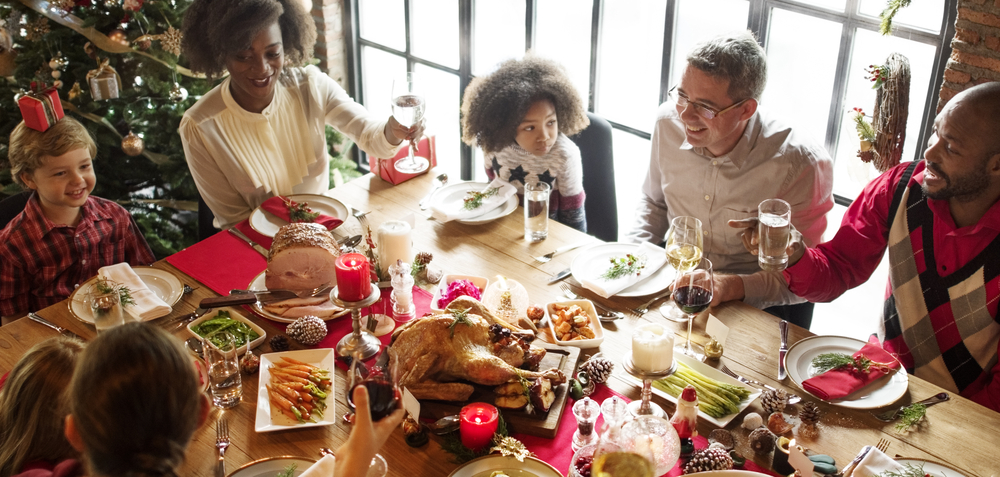As we all know, Thanksgiving is a special time to spend with family and friends. But if you are recently separated/divorced or are still needing more time to heal from a separation/divorce, the last thing that might be going through your mind is celebrating let alone feeling thankful.
Yet it is this very season that it would behoove you and your co-parent to set aside your differences in order to be present for the children. Because the most important part of the holidays is the memories of how it was spent. The question is would you want your children to only remember the two of you arguing and/or bad-mouthing one another to be the family legacy? I say legacy because in essence, this is what you will be leaving your children with. This is what you are essentially modeling to them what “love” looks like.
We are constantly instilling in our children to be kind to others, to respect others, to communicate in ways that we would want to be communicated towards yet if we cannot do the same with our co-parent, what is the message that we are relaying to our children? Would we not then be telling them that it is a one-sided family philosophy that the children have to abide by and because you are the parents, you don’t have to? It can be quite confusing for children to say the least. I know this firsthand because it was confusing to experience this myself as a child growing up in a two-family household.
Perhaps because I experienced the more typical way a child is raised in divorce, I wanted to create a more mindful relationship with my son’s dad.
If you are feeling the same way and would like to create a more respectful and easeful experience with your co-parent, especially during this Harvest Feast, then the following tools will be a great way to begin that journey:
- Put Your Children First: This is the first step in realizing that what you say and how you say things in front of them can be detrimental to their well-being and to their self-esteem. So whatever you do, ensure that you put your children’s feelings first and let go of the egos by doing this next step:
- Leave Your Stuff at the Door: And I’m not talking about the stuffing for the turkey, either! What this means is to do your best to keep things cordial and leave any issues you may have out of it. This is a great tool that my ex and I were taught by one of our family therapists who said when you have had a stressful day at work, before you enter your home, leave all the tension of the day at the door so as to avoid bringing this into your household and possibly taking it out on your family. This same concept can be used when planning and figuring out logistics for the holidays because we all know how daunting coordinating time between both co-parents can be.
- Create New Traditions. If you haven’t shared the holidays together since being separated/divorced and you both are feeling open to the possibility then why not create a new tradition by celebrating together. Just because you both are no longer in an intimate relationship doesn’t mean that you aren’t still in a relationship with raising your child together. Since you both have made the conscious decision to co-parent, why not enjoy this special meal as a coFamily. And if you both aren’t ready yet, create a new tradition with your children. Perhaps if your kids are eating a big traditional meal with your co-parent, then include the kids in cooking something else fun to eat so the kids aren’t “turkeyed out”. Or perhaps make popcorn together and have a family movie night.
- Write It Down. Normally we say what we are grateful for at the dinner table but take it one step further and create Gratitude Love Notes to each other and share. And be specific with a quality that you are grateful for. I talk about this particular step in my book, “Taming Your Wild Child: 7 Proven Principles for Raising Connected and Confident Children.“
Below are some examples:
Instead of just saying: “I’m grateful for you.”
You could write: “I’m grateful for how helpful you are when you _________. It really helps when I need to get dinner on the table and I have noticed that I’m more calm for the rest of the evening.”
Instead of: “Thank you for taking the kids.”
You could write: “I’m thankful that you are flexible with watching our kids even when it isn’t your weekend with them. This not only helps me out but I see how our kids’ eyes light up when they get to spend more time with you.”
When we write down the qualities and what their qualities bring to life in a Gratitude Love Note, it is such a positive way to connect at a deeper level AND create wonderful memories together.
So for this Thanksgiving, why not stuff your day full of memories that can be a family legacy that your children and co-family will appreciate for many holidays to come.


Recent Comments